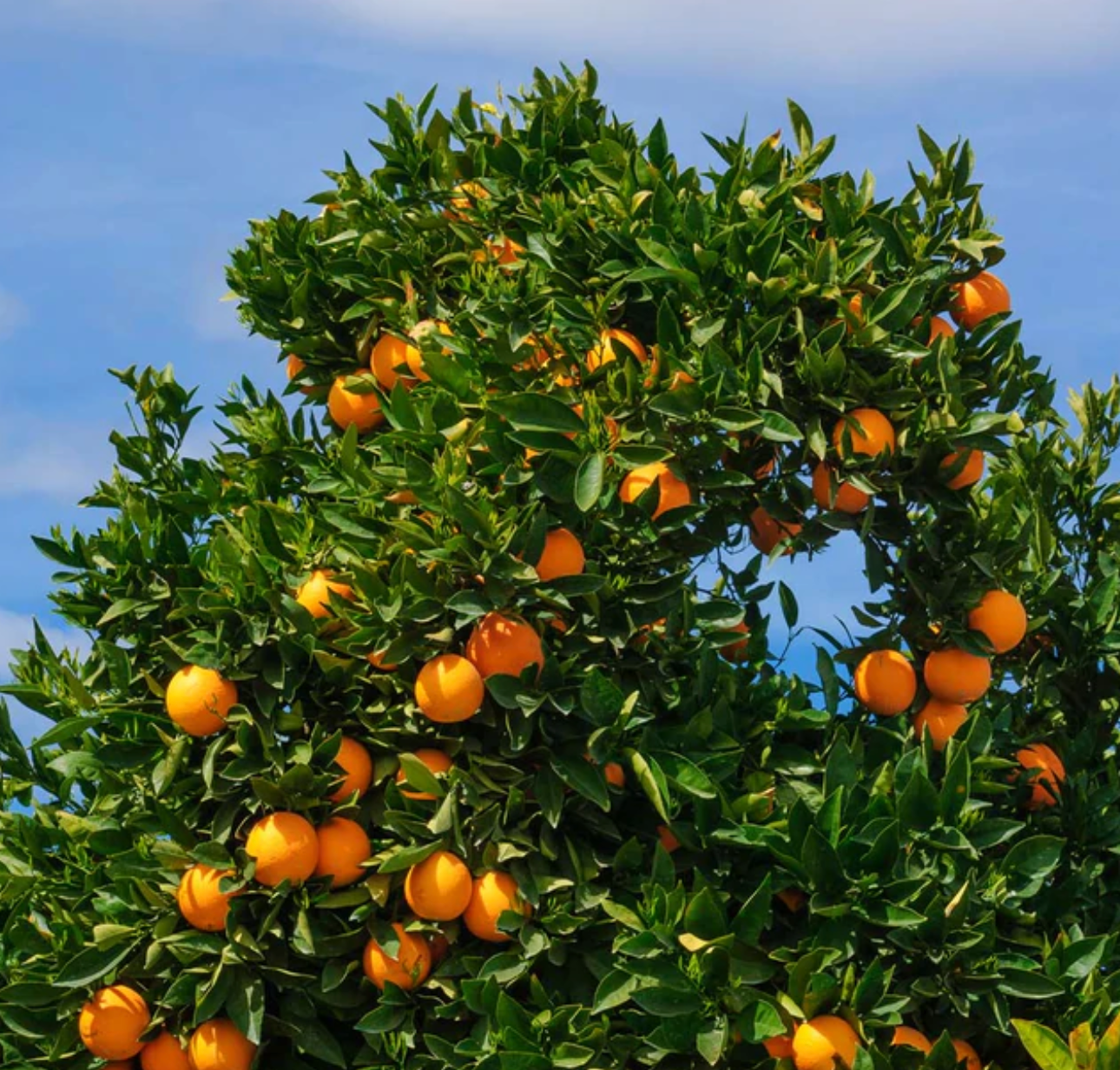Are you growing citrus fruits? No matter the weather outside, citrus is always a good idea! There's never a bad time to enjoy the easy growth and exotic taste of juicy, sweet oranges, tangerines, clementines, and more (especially since you can grow them indoors!).
Plus, there’s a popular orange on the scene that’s delicious and easy to grow: the Cara Cara Orange. A type of winter orange, this variety is stacked with benefits--let's dig into them below!
What Are Cara Cara Oranges?
Cara Cara Oranges are a cousin to Blood Oranges and are a result of the cross-pollination of a Washington Navel Orange and a Brazilian Bahia Navel Orange. Once the orange blossoms are pollinated, medium-sized, seedless oranges with red to pink flesh and an incredibly sweet citrus flavor are created.
What's the Difference Between Cara Cara Oranges and Navel Oranges?
Cara Cara Oranges are actually a type of Navel Orange, and the two are similar in size and outer appearance with bright orange, easy-to-peel, smooth skin. But the inside of the fruit is where they differ. Whereas the Navel has the typical yellow-orange flesh, the Cara Cara exhibits a red-pink color that resembles a grapefruit. They also differ in taste. The Navel is sweet and a bit acidic, but the Cara Cara has a sweet, tart flavor with notes of cranberry, blackberry, raspberry and rose.
Where Do Cara Cara Oranges Come From?
Cara Cara Oranges, also known as Red Fleshed Navel Oranges, are fairly young. They were discovered in 1976 in Venezuela, but they didn’t make their way to US markets until the ’80s and were only sold in select markets.

11 Reasons to Love Cara Cara Oranges
- They’re unique. Cara Cara Oranges look like regular oranges on the outside, but with pink or red flesh on the inside. They're unlike any other oranges, making them fun and different!
- They’re similar to grapefruits. Because of their flesh and color, they remind us of grapefruits with their pink flesh. Even though they resemble a grapefruit, they are 100% orange. Only, these Cara Cara Oranges have such sweet flavors that you don’t need to add any sugar like a grapefruit often requires!
- You don’t have to pucker up! They’re low in acid, so they aren’t sour like other types of citrus, instead these oranges are full of sweet flavors.
- The Cara Cara Orange has nodes of sweet berry flavors. Once you taste a Cara Cara Orange, you won’t be able to forget how delicious it is. With a less acidic flavor than other oranges, this variety has a berry-like flavor.
- These oranges are extremely juicy and refreshing. With every bite, thirst-quenching juices spill out. Plus, squeezing these oranges for juice is easy and provides a tasty homemade beverage.
- They have the benefits of a healthy snack. A few of the many benefits of Cara Cara Oranges are that they are low-calorie, fat-free, and full of vitamins and minerals. Give yourself a dose of vitamin A, vitamin C, fiber, potassium, protein, lycopene and antioxidants with every orange. They really are stacked with delicious and nutritious benefits.
- Cara Cara Oranges fit into our climate perfectly within multiple growing zones. While they're primarily grown in California, these oranges can be grown outdoors in growing zones near you. Even if your area freezes or gets a little snow, your Cara Caras will thrive in Zones 8-11.
- This orange tree makes the perfect container tree. Grow it indoors or out in a pot and watch it flourish. It'll look great on the porch, patio, and inside of your home. Just remember to place it by a sunny window, and be prepared to watch it thrive.
- Growing Cara Cara Orange Trees is fuss-free. They are happy, healthful citrus trees that don’t need a lot of attention. Give your tree a little water every few days, and you’ll have oranges growing in no time.
- The citrus aroma provided by Cara Cara Trees is irresistible. It will naturally sweeten and freshen the air around your home. You'll no longer need candles or chemical sprays to give your house a clean, citrus scent!
- Once the white blossoms erupt, your Cara Cara Tree’s citrus scent will be even stronger. The white flowers will pop against your tree’s lush green foliage for an eye-catching display of color.

Not sure if the Cara Cara Orange Tree is best for you? We offer plenty of other citrus trees for you to choose from!
FAQs
How to Use Cara Cara Oranges
Cara Cara Oranges can be used in a variety of dishes, snacks, desserts and beverages. Try adding some slices to a salad, making orange juice or a citrus vinaigrette, or creating a sweet marinade for fish and poultry. Or, simply eat them plain for a healthy, juicy treat. The options are endless and flavorful!
Where to Buy Cara Cara Oranges
Cara Cara Oranges can be found at various grocery stores and super markets around the country. You can also buy your own Cara Cara Orange Tree for homegrown citrus harvests!
What Do They Taste Like?
The Cara Cara has a sweet, tart flavor with notes of cranberry, blackberry, raspberry and rose. It’s less acidic in taste than other oranges, making it unique and delicious!
Where Do Cara Cara Oranges Come From?
Cara Cara Oranges, also known as Red Fleshed Navel Oranges, are fairly new to the market. They were discovered in 1976 in Venezuela, but they didn’t make their way to US markets until the ’80s and were only sold in select stores.
How is Cara Cara pronounced?
Cara Cara is pronounced keh·ruh keh·ruh


